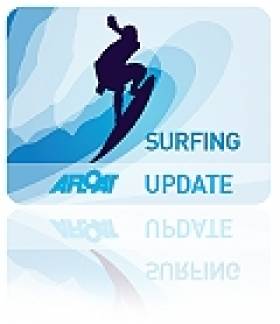Displaying items by tag: Eric Rebiere
The Wait Begins for Second Tow-In Surf Session
#SURFING - The waiting period for the second Tow-In Surf Session at Mullaghmore Head is now under way.
The invite-only list of the world's top big wave surfers has until 1 March 2012 to try to best the monster waves ridden in last February's inaugural contest.
Irish pioneers Richie Fitzgerald, Peter Conroy and Glyn Ovens will be on call for the return event, which has also invited back open teams winners Benjamin Sanchis and Éric Rebière, according to Surfworld Bundoran.
Sanchis is also the 2011 Billabong XXL biggest wave award winner, and intends to defend his crown in Sligo.
“Mullaghmore is a spectacular wave, but you really need to be prepared to surf big waves there," he said.
The first Tow-in Surf Session - which was even immortalised in a documentary - was organised by the Irish Surf Rescue Club in part to dispel the myth that tow-in surfing, where surfers are towed by jetski to bigger offshore waves, is an irresponsible activity.
“Our team has put an enormous amount of training, both here and abroad, to ensure that the sport of tow surfing and this event can be as safe as possible," said organiser Paul O'Kane.
The latest news on the second Tow-In Surf Session will be made available on the Billabong website HERE.






























































